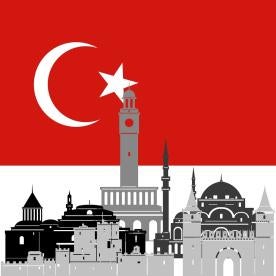On December 22, 2016, Turkey adopted a new IP Code of Property no. 6769 IP (IP Code), which repealed and replaced the Decree Laws on Patents and Utility Models, on Trademark and Service Marks, on Industrial Designs, and on Geographical Indications (Decree Law). The new IP Code entered into effect on January 10, 2017. In this multi-part series, we will address how this new IP Code changes the IP landscape in Turkey. In our second installment of the series, we will examine the changes to the codes relating to industrial designs.
Submission of the Description of the Designs
Under the new IP Code, during examination, the submission of the description of an industrial design is optional. This is because the information provided in the description does not affect the scope of the protection of the design. In contrast, the former Decree Law required such a description to be provided during examination. The new IP Code avoids an obligatory requirement for registering a design.
Industrial Designs will be Examined for Novelty
During examination, a design will now be examined for“novelty”. Designs found not to be novel will be ex-officio refused. The former Decree Law did not provide an ex-officio novelty search stage during examination. In fact, novelty could only be questioned through a post-grant opposition or an invalidity action before the IP Courts.
Visible Parts of a Complex Product
According to the IP Code, only the visible parts of a complex product are protectable. However, in order for the visible parts of a complex product to be protected, the visible parts must meet novelty and distinctive character requirements. A design is considered to be novel if before the application date no identical design has been made available to the public anywhere in the world.
A design is understood to have an distinctive character if the overall impression it creates on the informed user is significantly different from the overall impression created on the same user by any design which has been made public (in Turkey or anywhere else in the world) before the application date of the design. In the assessment of the distintiveness, the emphasis of the evaluation will be on the common features of the design; however, the degree of freedom of the designer in developing the design will also be taken into consideration.
Spare Parts of a Complex Product
According to Decree Law, the owner of a registered design could not assert its rights with respect to a visible part of a complex product until three years after the time period after which the design was first made available to the public. The new IP Code introduces a new derogation stating that the this three year period is not be applicable if the protected spare part design is mentioned among the list of “equivalent parts” issued by the Ministry of Science, Industry, and Technology.
Shorter Opposition Period
Under the new IP Code, the post grant-opposition period is now three instead of six months. The reduction from six to three months will reduce the total registration time to less than a year.
Non-Registered Industrial Design Rights
In order for a design to be protected as a “non-registered” design, the design must first be made available to the public in Turkey. The duration of protection for a non-registered design is three years from the date the design was first made available to the public (in Turkey). Interestingly, non-registered design protection is intended to protect fast changing designs which are not intended to be registered for long periods by the design owner. This type of protection will avoid registration costs for the designs for which registration is not preferred. However, the owner of a non-registered design will be requested to evidence of ownership and that the design was first made available to the public in Turkey when enforcing its rights.
Non-registered designs are also protectable without any time limit under the unfair competition provisions of the Turkish Code of Commerce which remain in force. During the next few years, it will be interesting to watch whether the Courts in Turkey will still allow such unfair competition cases after the completion of the 3 year protection period.
Enforcement of Non-Registered Designs
Under the new IP Code, designs are protectable for three years from the date of first public disclosure, if such disclosure was made in Turkey. This protection is available for non-registered designs to prevent the use by third parties of identical or similar non-registered designs. The IP Code also provides a common provision for the compensation of damages arising from intellectual property rights including registered and non-registered designs. As a result, a design holder can ask for material damages which include actual damages and loss of income. The loss of income can be calculated pursuant to one of the three (3) options mentioned in the IP Code, namely, the loss of income of the plaintiff, the income of the defendant or in accordance with an exemplary license fee. Upon request by the plaintiff, the Court can increase the damages for the design holder under specific circumstances. Moreover, the design holder can also seek moral/reputational damages.
Under the IP Code, a design holder can ask the Court to issue a preliminary and/or permanent injunction, compensation, the confiscation/destruction of the infringing goods and the tools and machinery (such as those used for manufacturing the infringing products), the publication of the verdict in a daily newspaper or any similar award.
Okan Can of Deris is co-author of this article.





 />i
/>i

